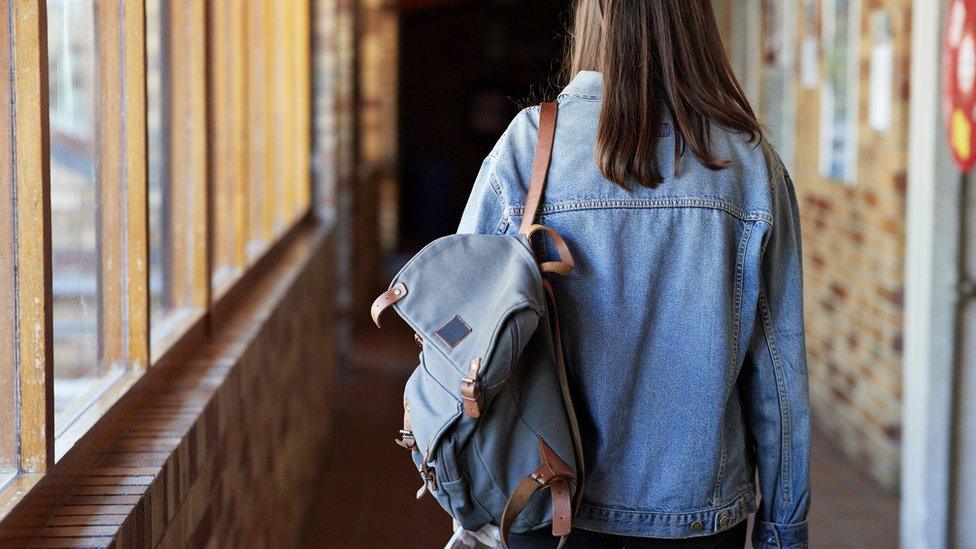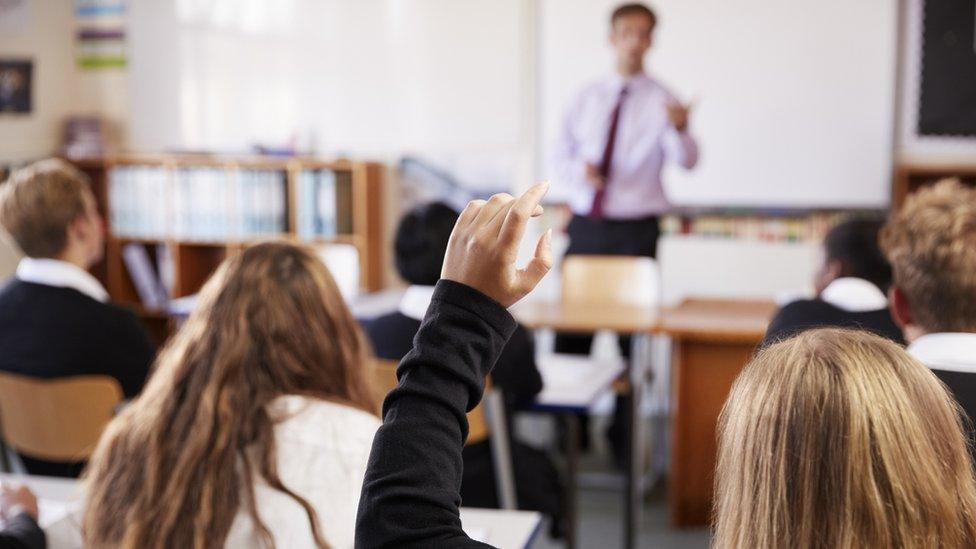Sex education must engage boys to tackle harassment - MPs
- Published

Sex education lessons must engage boys and young men in order to tackle "a scourge" of sexual harassment and violence in schools, according to a group of MPs.
The inquiry by the Women and Equalities Committee heard relationships, sex and health education (RSHE) was "less applicable" to boys than to girls.
It is calling for lessons to be made compulsory in sixth forms and colleges.
The government says it is developing further guidance for schools.
The inquiry found that some schools were still not acknowledging the problem of violence against women and girls, while many lacked the funding and time to deliver RSHE effectively.
Young people are making their first steps into the adult world "under-supported and less equipped" to navigate potentially "dangerous situations", the committee warned.
Their inquiry heard how easy access to pornography had "completely changed the culture in the playground" and it was having a "very corrosive impact within schools".
One session heard tales of boys "cyberflashing hardcore pornographic images at girls in the corridor, and airdropping nude images to other students in class".
Several witnesses said boys were unlikely to engage with RSHE learning if they were shamed, or put on the spot.
The committee is calling on the government, as part of its review into sex education, to develop a specific strategy for engaging with boys and young men on the topics of sexual harassment and gender-based violence.
It recommends that all teachers should be trained on how to engage male pupils in conversations that "challenge prevailing gender norms" and ideas of masculinity.
The report, external also called for:
Ofsted to investigate the level of abuse experienced by female staff in schools as part of its inspections
A sexual violence awareness campaign which targets male university students, and a mandatory obligation on universities to tackle harassment
Head teachers to do more to address harmful use of mobile phones in schools
Thousands of school-aged children posted online testimonies of sexual assault and harassment in schools in 2021 - in what became known as the Everyone's Invited movement.
Caroline Nokes, chair of the committee, said "whilst there have been some positive steps since the Everyone's Invited movement exposed how widespread the problem is, there is clearly more to do to improve safeguarding and education".
Paul Whiteman, general secretary of school leaders' union NAHT, said the issues outlined by the committee "reach far beyond the school gates" and "the onus cannot just be on schools to solve".
But he welcomed the call for better funding and support to "ensure all school staff are equipped to deal with the challenges they are facing".
A Department for Education official said it was developing further guidance to help schools "engage boys and young men about misogyny and sexual violence in education".
"Through the Online Safety Bill, technology firms will be required to enforce their age limits and protect children from being exposed to harmful material online," the official added.
Related topics
- Published31 March 2021

- Published8 March 2023
